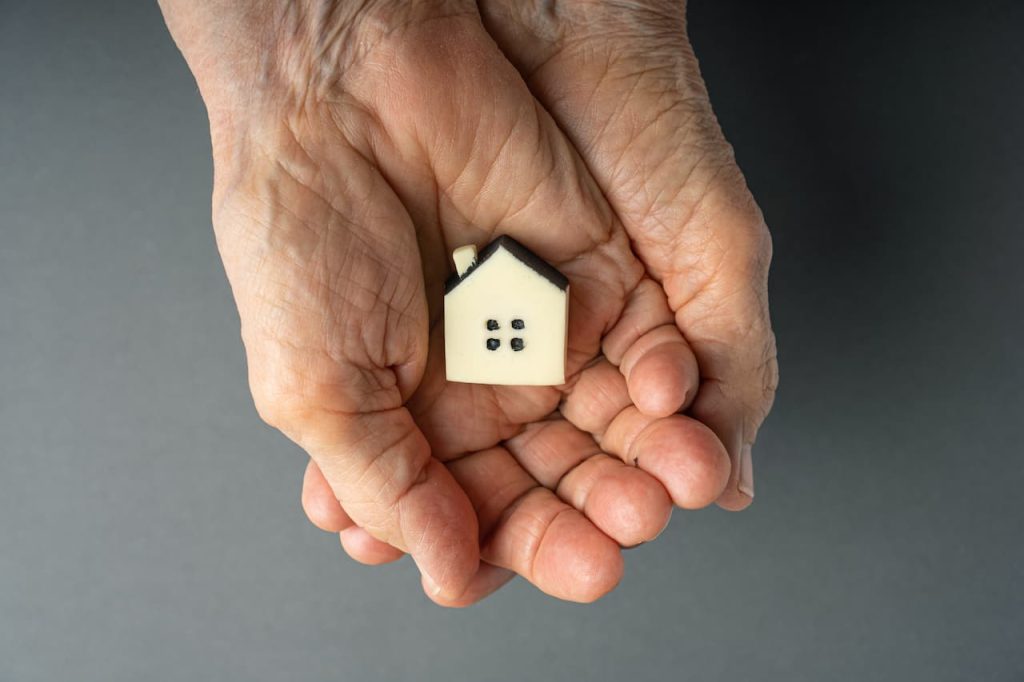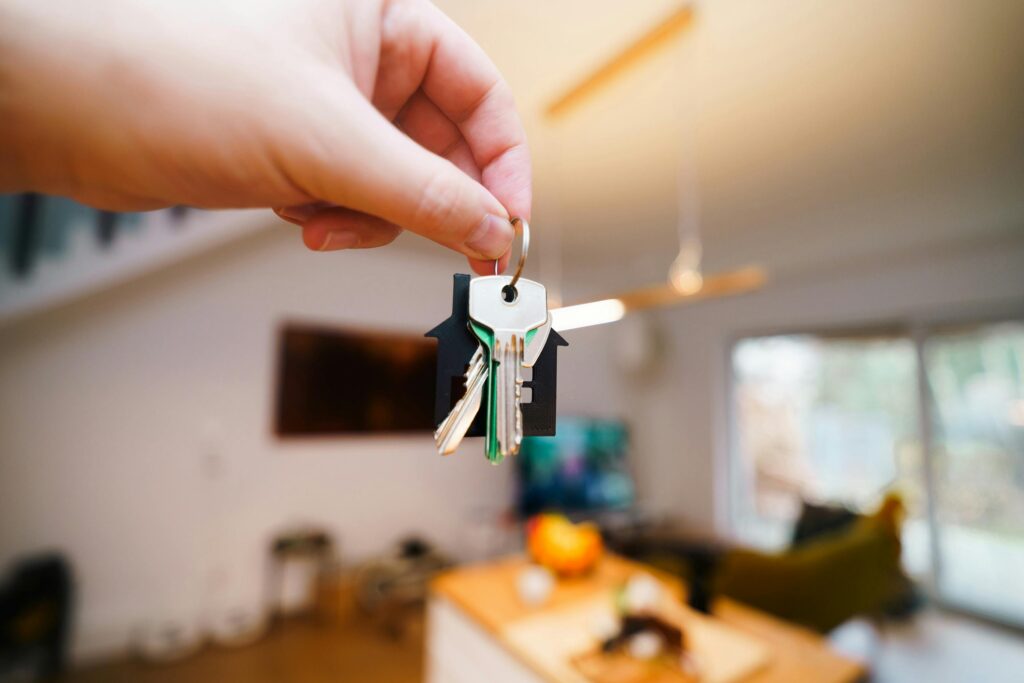Inheriting a House That is Paid Off: Everything You Need to Know

Estimated reading time 8 minutes
A house with no mortgage to pay is the dream for many of us, although inheriting one can make the feeling a little bittersweet due to the loss of a loved one. Furthermore, inheriting a home that is paid off comes with its own set of challenges that can be stressful, time-consuming and complicated. In this edition of our blog, we look at everything you need to know when you inherit a house without a mortgage.
The process of inheriting a property that has been paid off
As much as it would be nice to be simply handed the keys and left to your own devices, there are some things you need to work through to be fully compliant with the law and the tax man!
Before anything can be done, the estate of the deceased person must enter probate. This is the legal process where the will gets validated, and assets are distributed. An executor will be named in the will and is given the responsibility of fulfiling the wishes of the will. They will then distribute the assets to the named beneficiaries of the will. Sometimes, the executor and beneficiary may be the same person.
It is not a quick process and probate can take up to a year to settle in some cases, especially if any people are contesting the will or any complications surrounding the property arise.
If you are set to receive the house as part of the will, and it doesn’t have a mortgage, you could find yourself in a potentially strong position. You’ll just have to have the property transferred to you first, and how this happens depends on whether the property is registered with the Land Registry or not.
How do you transfer inherited property without a mortgage?
There are two ways you can transfer property ownership and it depends on the registration status of the home as to which route you take.
Transferring a registered property
If the property you inherit is registered with the Land Registry, the executor of the will must submit a form known as the AP1 to the Land Registry. Accompanied by the grant of probate and all other relevant documentation, the AP1 will allow the property to be transferred to the listed beneficiary.
Transferring an unregistered property
If the property you inherit is not registered with the Land Registry, the executor of the will must follow a slightly different process. Rather than submit an AP1, they must execute a deed of assent. This transfers ownership to the beneficiary who can then register the property with the Land Registry.
What can you do with an inherited property that doesn’t have a mortgage?
With no mortgage left to pay and the ownership transferred, you could find yourself benefiting from a premium piece of real estate. However, it isn’t always guaranteed to be the unexpected blessing you may have thought it was. If the house requires significant repair to bring it up to a livable standard, you could be spending vast sums that you may not recoup.
In addition, you could find that a sizeable portion of the value is lost to inheritance tax or capital gains tax. We’ll dive into that shortly.
There are three options open to you when you inherit a mortgage-free property. Some deliver more benefits than others. With this in mind, you should consider what works out best for you not only financially but also sentimentally.
Keep the inherited home
You may find it hard to part with the property, especially if the home has huge sentimental value. It may also act as an investment that can be passed on in the future to your children, a partner or another relative. Property is a valuable investment asset, and you could go some way to helping safeguard your children's future or get them set on the property ladder.
You could even use it as your main home after selling your main residence. You then have a property to live in totally free from rent or mortgage and stand to benefit from its potential appreciation in the future.
It is worth considering that property isn’t cheap though and you could find the upkeep and any repairs to the home cost huge sums. If the outgoings outweigh the potential return on investment, you may need to think about selling, or at least holding off on certain repairs for now.
Sell the inherited home
Selling inherited property can often be a tough decision to make, but it is often one that makes the most sense especially if the costs of restoring the home are likely to mount quite high. It can be a decision fraught with emotion and one that is not at all easy, that’s understandable. The sale though may deliver you financial benefits that help improve your family's way of life or give you new opportunities that were previously unaffordable.
The sale could see you face a large capital gains tax bill if the inherited home is not your main residence too. This is a tax paid on any profit you make on the home when it sells. Current rates for gains on residential property are 24%. Just remember, this tax is calculated on the gain and not the total property value.
Rent out the inherited property
Renting out the property could be a great way to give yourself some additional income that may help make life a little more affordable. However, it’s not simply a case of just cashing in the rent you receive each month. You’ll have the full responsibility of a landlord, and this incurs not just additional costs but also additional time and a fair degree of stress. Furthermore, the rent you are paid is taxable, so you’ll have to factor in the income tax bill too when deciding if letting the inherited property is worthwhile.
What are the tax implications for inheriting a property without a mortgage?
You could find yourself paying various types of tax when you inherit a property without a mortgage. Income, inheritance and capital gains tax are all possibilities. Let’s see how they may affect you.
Inheritance tax
Depending on the value of the property you inherit, you could find yourself having to pay inheritance tax. If the entire estate of the deceased individual exceeds £325,000, inheritance tax will be due on any part of the estate above this value. This tax rate is 40% but the value owed can be reduced. If the property was the main residence and is passed on to a direct descendant, an additional allowance of £325,000 is added. If the property is passed onto a spouse or civil partner, there is no inheritance tax to be paid at all.
Capital Gains Tax
If selling the inherited property is an avenue you want to go down, it is likely you will have to pay Capital Gains Tax. This tax will be paid on any increase in the property value since the date the person passed away and is worked out by taking the sale amount, minus the value at death and the costs of sale. The tax paid will be calculated at 24%.
Income tax
If renting out the inherited property is a possibility that appeals to you, then you will need to look at the potential income tax bill that could come your way. You will need to pay the tax on the profits made from renting out the home but deductions for repairs and other allowable fees can see the bill reduced somewhat. This will be at 20% if you are a basic rate taxpayer and 40% if you are on higher rates.
So, what should you do?
Ultimately, it is up to you. All the options available to you when you inherit a property with no mortgage deliver some form of benefit, but each can come with costs. One such way to minimise those costs is to speak to Bettermove. We can utilise our pool of cash house buyers and enable a rapid sale of your property that is totally fee free. This way the property you inherit delivers you a cash sum without costly legal fees and other surprise property charges. We make it possible to sell your house for free so you see more of what’s rightfully yours. With a sale in as little as 30 days, you could be helping shape your children’s future, fulfilling other property plans, or seeing an inheritance convert to essential cash fast.



